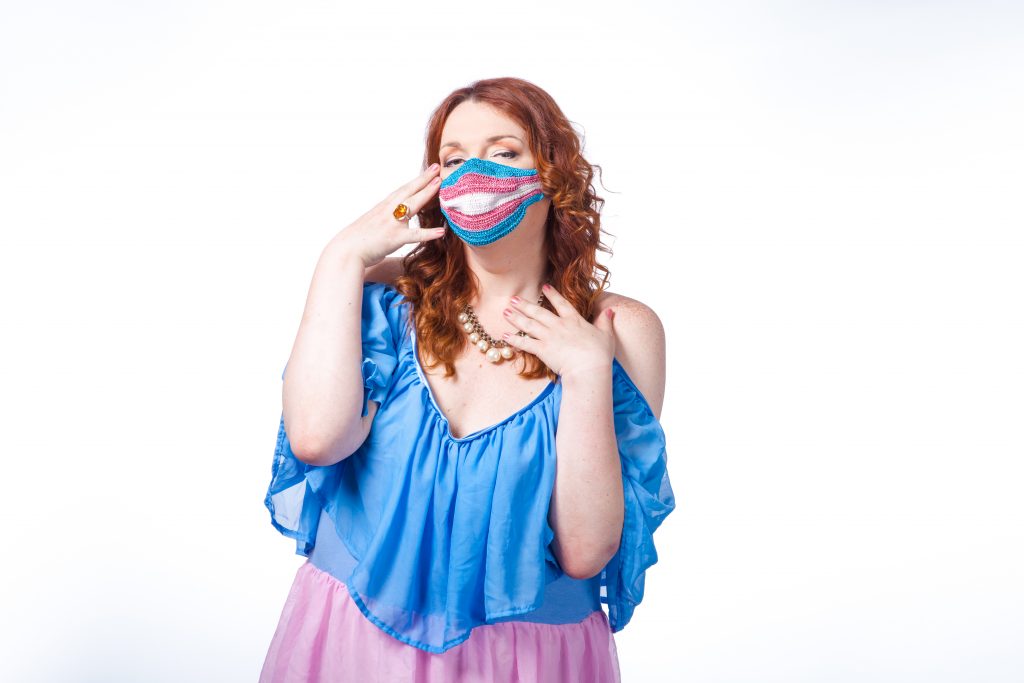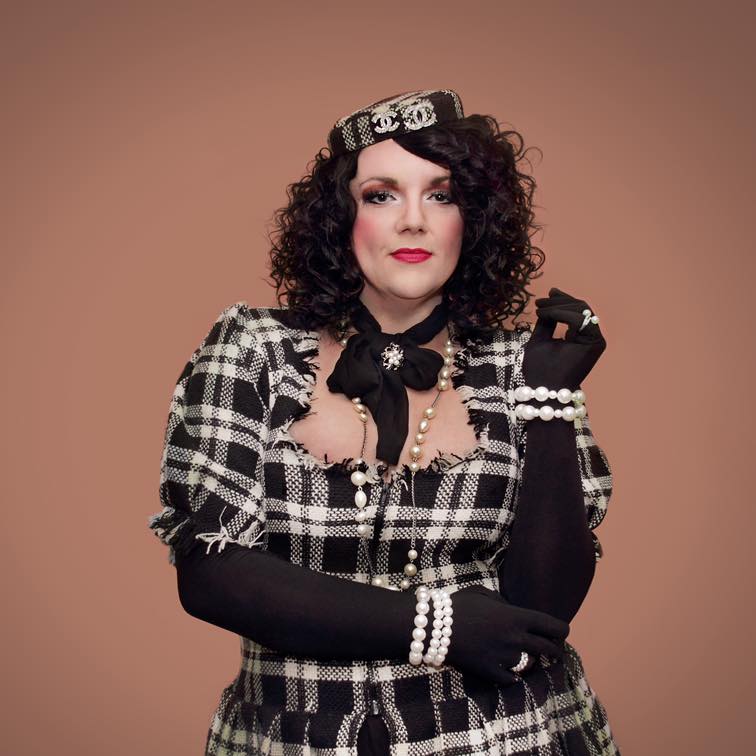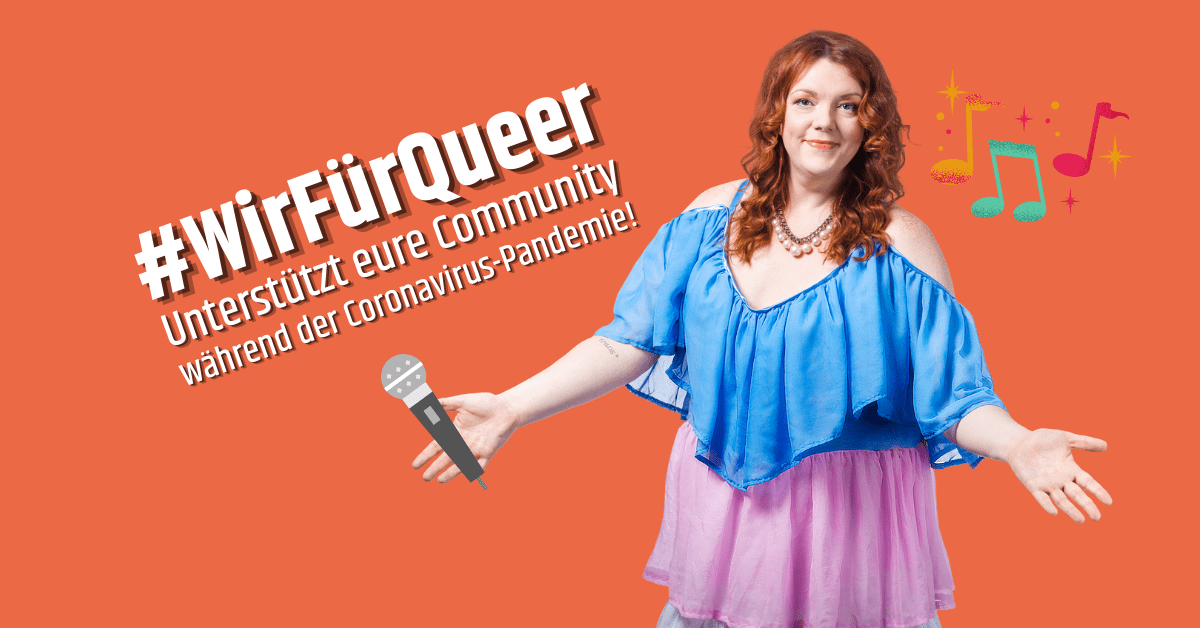Since September, Kaey has felt like Wonder Woman: invincible! At least the coronavirus can't touch the Berlin native any time soon. She has just survived the infection. "For me, the spook is over for now," says the 40-year-old and laughs. It is still unclear how long a person is immune after a Covid-19 infection. Experts suspect that the body's own protection could last up to three years. At least that's the case with other coronavirus diseases such as SARS. But nobody knows for sure yet. That's why Kaey remains cautious and is following all the safety rules.

"When my doctor told me the test result, I was nervous," remembers Kaey. "Overweight people are in the risk group. But luckily I have a good immune system. I only had a slight fever and a cough for a week. Just like a mild cold." Even better: she was also spared the late effects of a Covid-19 infection, which some people suffer from. The passionate singer can breathe freely again. She has always been able to smell and taste normally.
The void after the lockdown
"It makes me feel a certain emptiness throughout the day - and in my wallet."
Kaey has not only experienced the new virus first-hand, she has also been personally affected by the measures taken to combat it: "As a singer and performer, I want to perform in front of people. But I haven't been allowed to do that for six months now." Otherwise, the native of Halle is on stage two or three times a month, in a drag show or at a concert. Although her main job as an editor provides her with a secure income, she misses these regular side jobs - but above all the opportunities to express herself artistically. "That leaves me feeling a certain emptiness throughout the day - and in my wallet." The situation is serious, but the entertainer still has a final punch line. Laughter helps her through the crisis.

At least there were a few outdoor events again in the summer, with plenty of distance and fresh air. But it was precisely these events that made Kaey feel the crisis in the show industry particularly keenly. "The few opportunities to perform were in high demand," says Kaey. "That intensified the competition and made the differences between people even greater."
Entertainment creates community
Now the cold autumn is coming and driving people indoors, but many venues are still closed. "I'm really scared for my clubs," admits Kaey. For Berlin nightlife institutions such as Swuz or SO36 the corona crisis is fatal. "If they disappear, we would miss something," emphasises Kaey and explains why: "The queer community is largely created through entertainment: dancing, drag shows... This cultural landscape is in danger."
"Politicians must now find more effective solutions."
The state of Berlin is supporting its discos and concert halls with financial injections - just like other major cities. "So far, there has only been emergency aid, but no really sustainable idea of how cultural life could continue despite corona," criticises Kaey. "Politicians must now find more effective solutions to cushion the economic impact. Otherwise many of these important places will disappear."
What Kaey misses most are clear rules on how parties and shows could continue - preferably standardised for the whole country. "So far, there are still double standards: People wearing masks are allowed to sit next to each other on trains and planes, but not yet in the theatre. Why is that?"
At least theatres in Berlin will soon be allowed to reopen, albeit with strict restrictions and significantly fewer audiences than before the pandemic. With the appropriate technical requirements, at least up to 60 per cent of seats should be able to be occupied again, with social distancing and face masks worn during performances. Kaey is nevertheless sceptical: "It's a bad sign that even high culture was considered dispensable for months. If it is treated so subordinately, what is left for our subculture?"

(© Photo: Alexander Heigl)
Putting pressure on together
"But there is already solidarity among queers."
Kaey believes it is all the more important that the queer community does not allow its - mostly night-time - meeting places to be taken away: "Clubs like Schwuz are safe spaces where gays, lesbians, trans* and other queers can meet and have fun together." She thinks it would be best if everyone put the pressure on together: "I know a lot of people who say disappointedly: 'What community? Everyone is just fighting for themselves! But there is already a Solidarity among queers. In Berlin at least, many different subcultures are present, they have their mouthpieces to make themselves heard - and they are well networked."
Kaey is particularly involved in the trans* community. It is very active and often speaks out, she assures us. About her main job at the queer city magazine Victory Column she also knows many lesbian activists. "Many queer groups work together regularly - despite the trench warfare that sometimes occurs." Kaey finds this cohesion important, especially in times of a pandemic. "We in the community often use the same spaces. It would be fatal if we didn't fight for them together."
The queer scene has also been affected by the coronavirus pandemic, whether through possible loneliness or financial difficulties. Do you want to help or are you looking for help? #WeForQueer lists projects that offer help or are looking for support themselves. Click through and find a suitable aid or solidarity campaign!










